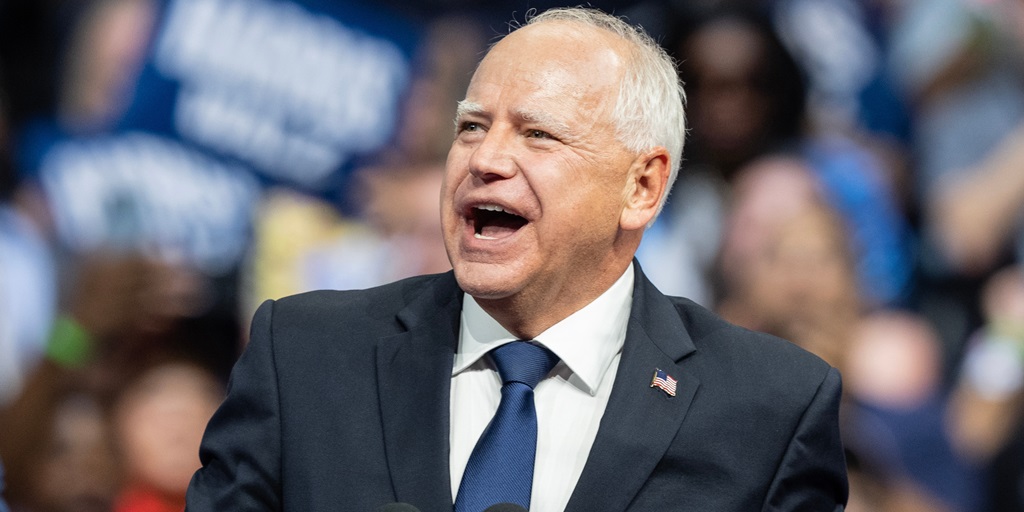What is Tim Walz’s Record on Immigration?
The American Immigration Council does not endorse or oppose candidates for elected office. We aim to provide analysis regarding the implications of the election on the U.S. immigration system.
While immigration remains a top issue for the nation as a whole, for years Minnesota has taken an active role in integrating and supporting immigrants throughout the state. Governor Tim Walz’s record demonstrates a commitment to novel and inclusive immigration policies at the state level.
Immigrants in Minnesota
Minnesota has a long history of welcoming people fleeing violence and persecution abroad, from Hmong refugees in the 1970s and Somali refugees in the 1990s, to Afghans seeking safety after the fall of Kabul two years ago. In 2022, immigrants comprised 8.4% of the state population, contributed $2 billion in state and local taxes, and comprised 10.6% of the state’s workforce.
Governor Walz’s Record on Immigrant Integration
Since assuming office in 2019, Walz has maintained Minnesota’s legacy of welcoming newcomers. In 2020, he declared October 26 as Immigrant Integration Day – a symbolic gesture demonstrating his commitment to making Minnesota more welcoming to its immigrant population.
Walz signed legislation in 2023 that invested in a range of new initiatives to address labor shortages, boost the state’s economy, and tackle workforce disparities facing immigrants and other marginalized communities:
- The Community Wealth Building Grant Program offers low-interest loans to community businesses, with a majority of owners from underrepresented groups, including immigrants, as a strategy for economic growth.
- The Drive for Five initiative provides high-growth employment opportunities across five in-demand sectors: technology, the trades, caring professions, manufacturing, and education. The program prioritizes support for individuals who face systemic barriers to employment and provides grants for workforce training, employment placement support, and employer engagement.
- The Targeted Population Workforce Programs was awarded $50 million to provide skills training and support services to workers from historically overlooked populations, in an effort to build a more inclusive economy.
Addressing the needs of the state’s limited English-proficient residents, who comprised 4.5% of the population on average between 2017 and 2021, the Minnesota governor has promoted language access initiatives in all corners of state government, from the ballot box to public schools:
- In 2023, Walz signed the Democracy for the People Act, which expanded interpretation and translation requirements for voting materials, critical for making sure that Limited English Proficient residents can exercise their right to vote.
- He issued Executive Order 19-01 in 2019 to establish the One Minnesota Council on Diversity, Equity, and Inclusion and implement practices statewide to address inequities facing Minnesotans. In response, Minnesota IT Services and the Department of Public Safety-Vehicle Services Division developed a multilingual virtual assistant tool to guide users through driver and vehicle processes in four languages. The tool received national recognition and was the first driving-related virtual assistant in the U.S. to be translated into Hmong and Somali.
- The Taskforce on English Learner Programs, established by Walz in 2024, will look for ways to more effectively use English learner funds in public schools.
Governor Walz also signed legislation in 2023 to permanently establish an Office of New Americans (ONA), housed under the Department of Employment and Economic Development, to spearhead state initiatives related to immigrant integration and create welcoming communities. The ONA works to ensure equitable access to state services, reduce employment barriers, establish language access initiatives for immigrants, and more. Minnesota and 20 other states now have an ONA or senior policy person focused on immigration issues. These 21 states participate in the bipartisan Office of New Americans State Network, a forum for state offices and policymakers focused on immigrant inclusion to come together and engage in peer learning. The network is co-convened by the American Immigration Council and World Education Services.
Governor Walz’s Support for Undocumented Populations
Undocumented Minnesotans, most having lived in the U.S. for over 10 years, contributed over $103 million in state and local taxes in 2022, but are often ineligible for government services. As Governor, Walz has supported policies to ensure new Americans, regardless of their immigration status, are not excluded from key state programs:
- In 2023, Walz signed the Driver’s Licenses for All law, joining 18 states in providing state IDs and driver’s licenses to all residents and benefiting 81,000 undocumented individuals.
- His North Star Promise, enacted in 2023, made free college tuition accessible to all financially eligible students at in-state schools, regardless of their immigration status. This built on the Minnesota Dream Act, passed in 2013 under Governor Mark Dayton, which provided in-state tuition and state aid to undocumented students who meet certain requirements.
- This year, Walz signed legislation to expand access to MinnesotaCare, a state health insurance program, to all undocumented residents using state funds. When the law takes effect in 2025, Minnesota will be one of only five states who offer state health care access to all undocumented residents who are otherwise eligible, in addition to eight states that provide access to certain segments of the undocumented population like children.
Governor Walz’s Record
Walz has kept pace, and at times led, among states in terms of immigrant inclusion policies.
Advocating for continued refugee resettlement in 2019, Walz once wrote, “The inn is not full in Minnesota.” Across two terms, Governor Walz’s policies have helped ensure a more inviting inn for immigrants who choose to make Minnesota their home.
Related posts:












